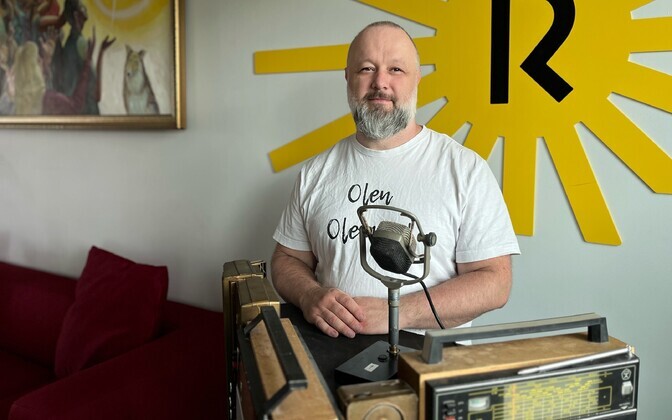Estonian psychologist and Peaasi.ee CTO Daniel Soomer says counseling chatbots can be a boon, helping users reflect on their thoughts — but warns they may also lead people to rely too heavily on their advice.
In some cases, patients face potential barriers to seeing a qualified mental health specialist — like distance from providers, or long waits for available appointments — and may have no other options.
“Then in my view, it can be helpful to use a technically reflective chatbot rather than go without support,” Soomer said in a recent appearance on Raadio 2’s “R2 Päev.”
On the Peaasi.ee website, which is available in Estonian, English and Russian, users have access to real human mental health specialists.
“We also have online counseling available, with specialist responses within a few days,” he noted. “And young people up to age 26 can use a separate youth counseling service that allows for in-person meetings.”
The Peaasi counseling chatbot runs on the ChatGPT engine. According to Soomer, the team has added protective boundaries, providing the bot with detailed prompts on how to offer counseling — and how not to.
“If a conversation touches on certain preselected topics, the chatbot will suggest reading more on the Peaasi.ee website,” he said.
A tool, not a substitute
Soomer emphasized that the chatbot is not a substitute for therapy. Instead, it acts as a supportive companion.
“It helps you make sense of yourself and put into words things you may not have considered before,” he explained. “It serves as a companion for reflection, asking questions and prompting you to speak up about certain topics.”
But there are risks. AI is designed to be highly service-oriented, meaning chatbots can be overly eager to give advice.
Soomer stressed that the advice the Peaasi.ee chatbot provides is general and reasonable, and it has been prompted not to offer recommendations immediately, it may still do so.
 Psychologist and Peaasi CTO Daniel Soomer. Source: ERR
Psychologist and Peaasi CTO Daniel Soomer. Source: ERR
He also cautioned users against relying too heavily on AI for mental health support.
“There is a risk of starting to believe too deeply what the chatbot says and recommends,” Soomer warned, adding that critical thinking as a life skill is more important than ever.
Users should also be careful about what they share with chatbots, in terms of personal data. “Chatbots don’t have any confidentiality requirements,” he noted.
Around 200 people use Peaasi’s counseling chatbot each month.
Mental health support available nationwide
If you find yourself in crisis, are having suicidal thoughts or are otherwise struggling, help is available.
On-call psychiatric care can be reached by phone 24/7 in Tallinn at +372 617 2650, in Tartu at +372 731 8764 and in Pärnu at +372 447 3281.
The Eluliin emotional support hotline is open daily from 7 p.m. to 7 a.m. in Estonian (+372 655 8088) and in Russian (+372 655 5688).
Another emotional support hotline is available every day from 10 a.m. to midnight in Estonian, Russian and English at 116 123.
The Ohvriabi victim support hotline is available 24/7 in Estonian, Russian and English at 116 006.
The child helpline is also open 24/7 in Estonian, Russian and English at 116 111.
—
Follow ERR News on Facebook, Bluesky and X and never miss an update!
